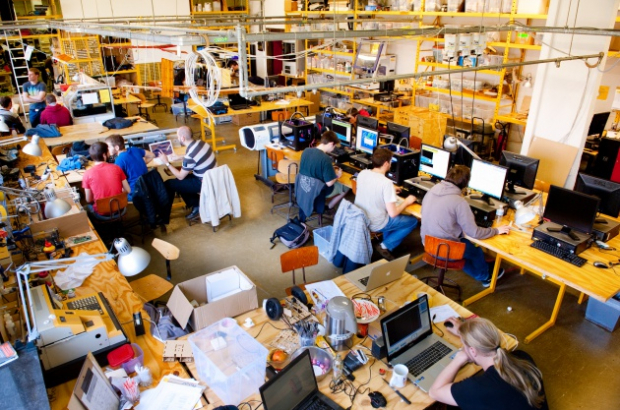- Daily & Weekly newsletters
- Buy & download The Bulletin
- Comment on our articles
Brussels university opens new FabLab in former police barracks
The Vrije Universiteit Brussel (VUB) inaugurated its new Fabrication Laboratory on Tuesday in Ixelles' former federal police barracks. It contains fully equipped workshops where students, staff and the public can make prototypes for academic, personal or entrepreneurial projects.
The VUB FabLab dates back to 2010, when it was set up at the Erasmus University College Brussel in Anderlecht. Since then, it has developed hand-in-hand with the university’s industrial sciences degree programme.
“The FabLab has made the training stronger, and the training makes the FabLab stronger,” said Mark Runacres, a professor in the department of engineering technology. “It’s not for nothing that our slogan is ‘prototypes not powerpoints’. It’s only possible to do that if there is a workshop. It also lends to self-confidence, a can-do attitude and a desire for innovation.”
The FabLab is also used by VUB’s researchers, including Runacres himself. “In my own field, we have gained access to the largest wind tunnels in Europe, partly because we could build featherweight wind turbine prototypes. Not everyone can do that.”
The move to the former barracks, between Generaal Jacqueslaan and Kroonlaan, brings the FabLab right next door to the VUB campus, where it will be even easier for students and staff to access. And from March it will be opened up to associations or individuals who have a project they want to work on.
“Our FabLab will involve as many people as possible in the new industrial revolution that is currently under way,” said VUB rector Caroline Pauwels. “With the FabLab, we are connected with the city and its creators.”
The VUB FabLab will work alongside the FabLab run by the French-speaking Université Libre de Bruxelles (ULB), which relocates from near-by Flagey. The Fablabs are the first residents of the site, which is being redeveloped under the banner Usquare.brussels as a place where the universities and the city can interact.
Future facilities will include an incubator for new companies, a research institute, student accommodation and family housing, cafes, restaurants and cultural spaces.














